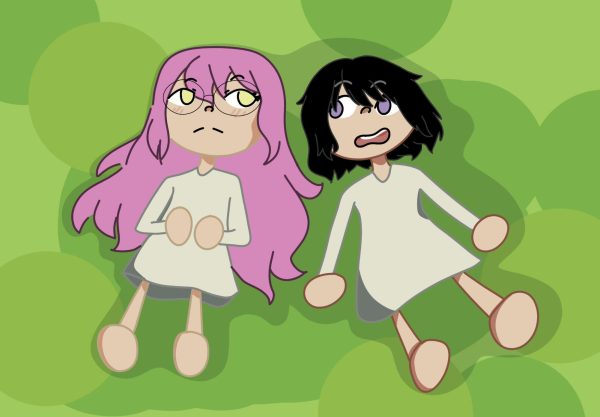Sexualization and the Female Experience
I realized that the world saw me as a woman the day I turned 13. We were in San Francisco, unfamiliar and foreign territory, when a group of men passed me. I remember clinging to my mother’s arm when 1 of the men paused, looked me in the eyes, and told me what exactly he would like to do to a body like mine. I was dressed like any 13 year old would be – colorful leggings, a graphic t-shirt depicting my favorite tv show at the time. And still, as the group patted themselves on their backs, as they walked away laughing (even after my mother had thrown my age in their face), I felt… shame.
Shame that I had attracted this attention. That I had to have done something to have caught their eye. I felt vulnerable, terrified that a compliment – because it had to have been a compliment, right? – could sound like that.
I spent the rest of the year avoiding adults. I wouldn’t wear a t-shirt outside without a sweater to cover me up for another 2 years.
My relationship with gender is paradoxical. No matter how I view myself as a transgender person, I know that some people will always see me as the sex that I was born as – which is fine with me, I’m not transitioning to get the approval of strangers – and as such, there are certain, undeniable realities that I have to face. And, apparently, female sexualization is 1 of them.
This isn’t a unique story, but that isn’t the point. The point is this: those men felt entirely too comfortable making those comments. Too comfortable mentioning my chest, pointing out my hips; even when it was all too evident that I was a kid.
Consider how women are portrayed in the media. The femme fatale, the crazy girlfriend, the ice queen – female characters are consistently bound by these archetypes (stereotypes). A study by Plan International found that female leaders were 4 times more likely to have scenes that contained nudity in comparison to their male counterparts. The same study found that ⅓ of strong female characters were costumed in revealing clothing. Think about DC and Marvel movies – was it really necessary to have Harley Quinn in booty shorts and a crop top throughout the entirety of Suicide Squad?
And, without getting too much into the psychology of it, just how does this hypersexualization affect teenagers?
For one, it certainly impacts our media representation. In examining the 900 top grossing movies of the past decade, the Annenberg School for Communication and Journalism found that teenage girls were 4 times more likely to be costumed in revealing clothing than their male counterparts. They were also twice as likely to be depicted in partial nudity.
Consider how women and things considered feminine are treated in contemporary society. Sure, we’ve come a long way from the past, but that doesn’t mean things are ideal now, either. But still, in our society, it is deemed okay for men to show their chests, but scandalous for women. Why? Because women have breasts, and breasts are inherently sexual in our culture.
When a man takes off his shirt (to run, to swim, because it’s hot) his chest isn’t sexual. It’s just a chest – a mere piece of his whole body. That’s because, in this specific scenario, his chest is not a sexual one. He’s just going about his day. The female chest, though not considered to be so, is the same.
The chest is just a part of the human body. And yet, because we hypersexualize the female body, a man taking off his shirt is seen very differently than a woman doing so. It is important to remember that what we view as indecent, improper, and obscene is not based on objectivity.
No human body is inherently sexual. Sure, it can be, in certain situations and scenarios. But the majority of the time, it’s just a body. So why do male bodies get this apparent freedom from inherent and perpetual sexualisation? Why is this sense of respect and individual freedom not given to female bodies?
The idea that a woman’s body is inherently sexual ultimately serves to further strip her of her freedom and individuality. If a woman’s body is sexual, and only good for sexual desire, what good is a woman who deviates from that norm?
All of this to say – the idea of a culture where women, and other marginalized groups, are valued as a whole individual, and not as something broken down into various parts and categories is currently a fantasy. But tomorrow? Who knows.
Maybe we can make it work.
Your donation will support the student journalists of Campolindo High School's The Claw. Your contribution will allow us to produce more issues and cover our annual website hosting costs.

Senior V Rogers has had a passion for literature since they were young: “My bedtime stories were Baldwin and Angela Davis.” They have taken AP language...

